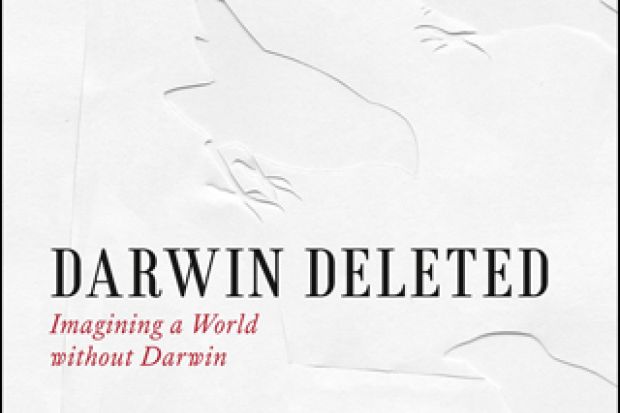What would the world look like if a young Cambridge dropout named Charles had fallen overboard from a Royal Navy survey vessel sometime in the 1830s? If the man in question was the one who would go on to have the best idea ever to occur to a human being, then we might suppose that the impact would have been huge - or would it? In this extremely entertaining and meticulously detailed book, Peter Bowler explores the development of evolutionary biology sans the grand old bearded one. He concludes that, while the Darwin-themed gift trade would have suffered, modern evolutionary science would still have developed, but its arrival would have been less revolutionary. What’s more, Bowler suggests, this course of events would have avoided much of the contention that still surrounds evolution in the popular imagination.
Post 2009 - the year of “Darwinzilla” that marked the bicentenary of his birth and the sesquicentenary of the publication of On the Origin of Species - it is a good time to pause and reflect on the input Darwin had on the development of what came to be called evolutionary biology. Removing Darwin from the picture altogether might be seen as rather drastic and many will raise an eyebrow at the approach Bowler adopts, yet it is a powerful and stimulating idea. After all, counterfactual history is fun. Bowler makes this point early on when citing Robert Harris’ Fatherland as an exemplar of counterfactual history through novelisation in the elegant introduction to his rationale for this book.
Bowler concludes that, while the Darwin-themed gift trade would have suffered, modern evolutionary science would still have developed
In the first six chapters, Bowler examines the context and development of evolutionary thought and imagines how a Darwin-free world would have produced what we now know as the Modern Synthesis (pretty effectively it would seem). They are well thought out and provide a wealth of detail that will engage readers regardless of how they come to this book. But the final two chapters, dealing with social Darwinism and religion, left me with more questions than answers and feeling a little troubled.
Bowler suggests that if Darwin had fallen off HMS Beagle - and after a tricky incident with a hammock, he did have form - social Darwinism would not have produced the intellectual fuel for the fires of racial hate that burned so brightly in the 20th century. In a brilliantly argued chapter, he simply and elegantly lays out the case that it was the subversion of Darwin’s ideas by others that produced the link in the popular imagination between evolution and ideas of racial supremacy that, for instance, provided the “intellectual” basis for Nazi ideology. Yet for all its elegance, this is one of the areas where some cracks start to appear in the counterfactual approach. Remove Darwin and clearly the development of evolutionary thought in the 19th century would have been radically different, but not human behaviour. Unfortunately, social Darwinism is just another label for the dark side of human nature that is as old as we are, and it would have flourished without the input from a book published in 1859. Bowler does not pause to address this point, and while it may be argued that it is outside the scope of his argument, it does illustrate a lack of wider context that can result from the counterfactual approach.
The chapter dealing with religion and evolution suffers from a similar problem. While Bowler argues that without the impact of the publication of On the Origin of Species, religion would have had more time to reach an accommodation with evolution, he does not make the obvious point that it is a one-sided relationship. Religion might need to make peace with evolution, but evolution does not need religion. In a counterfactual world without Darwin, would we need a Richard Dawkins?
Darwin Deleted: Imagining a World without Darwin
By Peter J. Bowler
University of Chicago Press, 328pp, £21.00
ISBN 9780226068671 and 6009841 (e-book)
Published 22 April 2013
Register to continue
Why register?
- Registration is free and only takes a moment
- Once registered, you can read 3 articles a month
- Sign up for our newsletter
Subscribe
Or subscribe for unlimited access to:
- Unlimited access to news, views, insights & reviews
- Digital editions
- Digital access to THE’s university and college rankings analysis
Already registered or a current subscriber? Login




